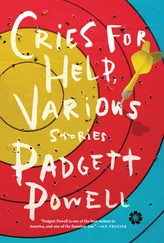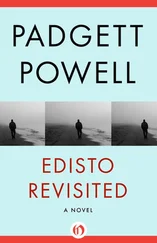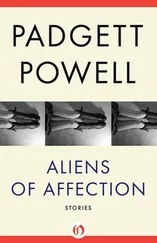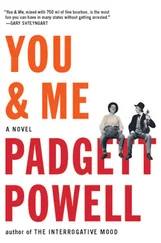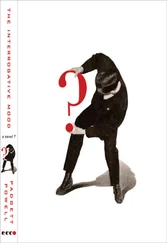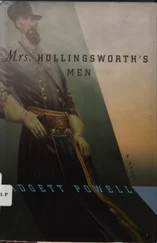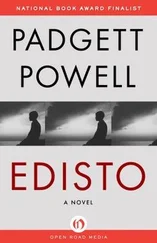Padgett Powell
Hologram: A Novel
“After all, I think Forrest was the most remarkable man our Civil War produced.”
— General William Tecumseh Sherman
“Forrest, … had he had the advantages of a thorough military education and training, would have been the great central figure of the Civil War.”
— General Joseph E. Johnston
“General N. B. Forrest of Tennessee, whom I have never met, … accomplished more with fewer troops than any other officer on either side.”
— General Robert E. Lee
MRS. HOLLINGSWORTH LIKES TO traipse. Her primary worry is thinning pubic hair, though this has not happened yet. She is bothered that a thought of this sort could occur to her at all, let alone with some frequency. She enjoys a solidarity with fruit. She is wistful for the era in which hatboxes proliferated, though a hatbox is not something even her grandmother may have owned. More probably what she wants is hatboxes themselves, without the era or the hats. But the proud, firm utility of the hatbox requires a hat and an era for its dignity; otherwise it is a relic. She does not want relics. Her husband is indistinct. She regards friendly dogs with suspicion. Her daughters have lost touch with her, or she with them, or both; it is the same thing, she thinks, or it is not the same thing, which means it might as well be the same thing: so much is pointless this way, indifferent, moot, or mute, as a friend of hers says. Not a friend, but a friendly man whom she cannot bring herself to correct when he says “mute” for “moot,” for then she might have to go on and indict his entire presumption to teach at the community college, inspiring roomfuls of college hopefuls to say “mute” for “moot” and filling them with other malaprops, and if she indicts him on that presumption she’ll need to go on and indict him for the presumption of his smug liberalism and for affecting to like film as Art and not movies as entertainment and for getting his political grooming from the smug liberalism and film-as-Art throat clearing of National Public Radio, and all of this, since it would be but the first strike in taking on the entire army of modest Americans who believe themselves superior to other Americans (but not to any foreigners, except dictators) mostly by virtue of doing nothing but electing to think themselves superior — all of this would be unwise, or moot, and indeed she may as well be mute, maybe the oaf was on to something.
She wanted to summon a plumber and pour something caustic down the crack of his ass when he exposed it to her, as he invariably would when assuming the plumbing position. Drano, she thought, très apropos. She had learned recently that the British term for the propensity of the working man to expose himself in this way was “showing contractor’s bottom.” That was a lovely touch of noblesse oblige, of gently receding empire.
She was less gentle in her apprehension that the entire world and everyone in it was showing its ass. She was not unaware, and not happy, that this apprehension linked her closely to the film-as-Art side of the herd, and she would go to a movie with a plumber wearing no pants at all before she’d go to some noir with a man in slacks, but still she found herself actually calculating the drift of things if one were to try to burn a contractor’s bottom. She figured on this seriously all one morning until finally she faced it: it had come to this, had it? Her mind had gone. The practical consequences of her symbolically telling the world to pull its goddamn pants up filled up her otherwise empty head at age fifty. It had all come to this. Muriatic acid for the driveway contractor, liquid chlorine for the pool man, shot of Raid for the bug man, upgrade the plumber to a bead of molten solder. When this nonsense left her mind alone, she thought about the Civil War. How a woman could be prevented from doing anything but thinking of contractor’s bottom, and of all which that represented, and of all her impotence at reversing the disposition of the human world to show its ass, was owing somehow to the Civil War. The American Civil War, arguably as silly a war as they come, she was virtually ignorant of. She was not better informed of any war, actually, save for perhaps the Second World War and Vietnam, on a very topical basis. And she knew of one man who had been in Korea. But the Civil War … was beginning to haunt her.
She could not reckon this sudden absorption with it, given how vastly uninformed she was of it. Manassas was molasses, Sharpsburg was Dullsville; the March to the Sea was no more than Hard to Lee. Her images of the dead, which she did know to nearly exceed the dead of all our other wars combined, were not those of the bodies themselves that the wet-plate photography so in its infancy had allegedly recorded in such stunning graphic detail. She kept seeing not bodies but crows on them. To her, true torment was not death but a crow.
The thousands of baleful tears shed then now went, she thought, into laundry softener — the women threw these handkerchiefs of the laundromat into their machines as they had thrown kerchiefs at military parades. The result was every bit as good: things smelled sweet and the women felt good about themselves. Their men marched on in the perfume of goodfeeling and put their cell phones to their heads and zeroed in on the enemy and fired nonsense at him all day. They had learned from Vietnam how to drop smoke on the enemy to target him better. There was much information. It was not clear when everyone had stopped believing in himself.
A prison term was not the worst thing that could obtain in this age, she thought. Nothing was. Nothing was the end of the world. All could be surmised and survived. Death and rape were just particularly bad. We were mature. But crows could land, after all; they need not fly all day long. And you had to regard them.
She knew that the Confederate mint in Columbia had printed its worthless millions and stood today in vacant ruin, but virtually intact, for sale at too high a price to sell to whoever would turn it into a museum or a mall. She knew that Appomattox is a National Park, fully restored, visited by thousands of tourists a year. She knew that only 4 percent of the final site of the Lost Cause is original, based on the number of original bricks compared to the total number of unoriginal bricks used in the restoration. She knew that this restoration had had to commence from the very archaeological digs that had discovered the outlines of the foundation of the house where it all ended. None of the bricks was even in its original location. Only some stones of the hearth are in the same place. Beyond that, only the airspace is the original thing, where it was. Maybe a piece of furniture or two that Grant and Lee might have looked at. And she knew about Lee’s ingenious battle orders that the Yankees found wrapped around dropped cigars. That business amazed and frightened her. And the name Nathan Bedford Forrest was in her head like the hook of a pop-radio tune. In her grasp of it all, he was a man who had somehow never been beaten in a war that was lost from the start. She knew more than she knew she knew.
On her kitchen table she noticed an odd, tall can of Ronson’s lighter fluid. There had not been a cigarette lighter of the sort that required this fuel in this house in she would guess twenty years. It would squirt down a contractor’s bottom as pretty as you please. She chuckled. She was not herself, she thought, or she was, perhaps, and she chuckled again.
Were men who could not keep their pants up a function of the Civil War? Were women who put up with them a function of the Civil War? Was having yourself an indistinct husband a function of the Civil War? Was finding a strange bottle of flammable petroleum distillate beside your grocery list a function of the Civil War? Was chuckling and not knowing what was yourself and what was not yourself a function of the Civil War? Was not really caring at this point “who you were,” and finding the phrase itself a hint risible, a function of the Civil War? She sat down at the table and wrote on her grocery list, “A mule runs through Durham, on fire,” and then, dissatisfied with merely that, sat down to augment the list.
Читать дальше

